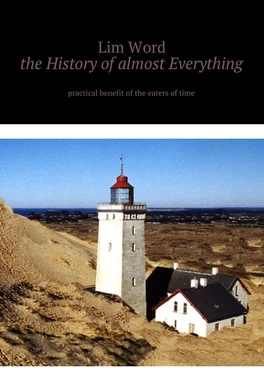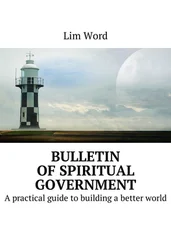3. The Jews. As you know, most of them went to Russia at the partition of the Commonwealth, in the time of Catherine II. By 1880, the Empire has five million people, 67% of the entire Jewish population. At one time, a “Pale of Settlement” was introduced for them, which does not allow migrating from the borders of present-day Byelorussia, Lithuania, Latvia, Poland, Ukraine into the interior of central Russia. Exceptions are made for merchants of the first guild, retired recruits, people with higher education, and Central Asian Jews. Such “special” representatives of the genus “aspiring to Zion” number only about 200 thousand.
One way or another, the residence of Jews in Russia is limited to Ivan the Terrible. Of course, we can not regard this monarch as a high spiritual authority. But, other Russian rulers – Peter the First, Elizabeth, Catherine II, as well, somehow tried to exclude the Jews from the reality of their government. A possible reason is the too high social, economic, any other activity of these well-developed, comprehensively developed, but deeply cooperated, internally isolated people. Sometimes this hyperactivity leads to the oppression or even enslavement of the indigenous population of the country.
One of the representatives of the ethnos is Dmitry Grigorievich Bogrov, who is also Mordko Mordechai Gershkovich. As you know, this, in this photo, a seemingly very worthy young man shoots Pyotr Stolypin, a man who avoids Jewish pogroms, one might say, that is very sympathetic to Jews, in retaliation for something incomprehensible once happened to the Jewish population, which allegedly “Should have provided for.” He himself also perishes. The peasant reform is decisively decelerated. In the near future, Bogrov’s act turns into the most brutal genocide of Jews in Ukraine (100—150 thousand people), the Civil War, and in a somewhat distant projection – the broad offensive of the German fascist troops, Babi Yar, Buchenwald, Oswenim, and others.
An important figure of the Revolution is Yakov Sverdlov, Yoshua Solomon Movshevich, formal head of the RSFSR, Chairman of the All-Russia Central Executive Committee (by education – pharmacist). In fact – the technical director of the Revolution, or indeed, the entire post-revolutionary Russia. It is believed that for some time he alone replaced the two most important ministries. It is also believed that Sverdlov is involved in the execution of the royal family. But, at the time when the families of peasants, workers, classes, villages and cities were being destroyed, he was not the only one he wanted.
It is believed that Sverdlov was also involved in the attempt on VI Lenin, a man who, in Yakov’s opinion, tasted too much unjustified popularity. The shooting and even the burial (probably) of the accidental figure of this action – eserkas F. Kaplan is suspiciously rushed. In addition, the fact that Y. Sverdlov occupies the Lenin cabinet immediately after the shooting at the Michelson plant – a gesture very symbolic.
Note that in England, the United States, Australia, New Zealand, and other countries that are considered to be basically “Anglo-Saxon”, the attitude towards Jews is exactly what British Prime Minister Winston Churchill expressed very precisely: “The British are not anti-Semites, because we do not believe yourself more stupid than Jews. “Indeed, the Anglo-Saxons, in large part, are very eager for everything new (with the preservation of old good traditions), appreciate oddballs, vigorously support compatriots in good, if risky undertakings, despite some external stiffness, create active “communities” (clubs, clubs on interests, public organizations). Here they are with the Jews on the same wave, in a pleasant mutual agreement, and that is why the axis of the British Commonwealth-US is in the lead on the planet Earth.
To be perfectly accurate, Jewish usurers were expelled (2000 people, that is, completely) from England under Edward the First, according to his edict of 1290, to Oliver Cromwell (1656). Jews were also expelled from Spain (if they refused to receive baptism in the three-month period) in 1492, 50—150 thousand people, Austria (1420), France (1182, again 1306), Germany, Portugal and the principality of Lithuania, in the 13—14 centuries. All of them settled in Poland, after the partition of which Catherine the Great and the German states, for the most part crossed the Russian Empire.
The Jewish religion and Protestantism, prevalent, primarily in the US (5.2 million and 160 million, respectively) have much in common. The Catholic and Orthodox churches are reluctant to recognize the very existence of the Old Testament, that is, the Hebrew Bible, and the fact that all the apostles and most of the early Christians are Jews. The theme of nationality, the whole complex long history of a certain Semitic people, represented in the 24 books of the Tanakh, seems to be something not so significant at all. Protestants (Baptists, Evangelists, etc. “denominations”), in contrast, pay a lot of attention to the study of the Old Testament. In many American films we see, here is how a certain person utters a quotation from Tanakh, and his interlocutor unconstrainedly indicates the chapter of the book and the number of the verse. So educated, educated in the Christian spirit, people recognize “their”.
Of course, the general reverence for Tanakh, unites Protestants and Jews. Further, in the history of those and others there is exile, the Great Exodus (the resettlement of the persecuted “heretics” into the New World). Third – the desire for the future, no matter how complex it may seem, trembling, tonic waiting for Armageddon and the coming of the greatest Messiah.
Protestants and Jews do not have churches with a complex, multistage hierarchy. A parishioner can become a priest or mentor. There are disadvantages in this, but also pluses. There is a great risk of error, the committing of sin, which is always manifested when a new one is being created, as well as some kind of arrogance, the self-image is always right. On the other hand, a person learns to act and think independently, broadly, organize active communities and effectively manage them. In Orthodoxy and Catholicism, parishioners are led by hierarchs, beyond superfluous questions and non-standard actions. Byzantium, who imported faith in Russia, was killed precisely because of a lack of active, enterprising people; military and civil rulers, inventors, industrialists (indifferent attitude to the novelty of military affairs – artillery); from the general mood “So that everything remains as before.”
4. Workers. With a population of 155 million (without Finland), by 1914 there were about 15 million workers in various industries. Of these, 4 million work in large enterprises, including (rail) transport. According to the testimony of an educated contemporary: “These are people dressed in their own way; trousers in European style, shirt color rifle, over the shirt vest and unchanged jacket, on the head – a cloth cap; then – they are mostly skinny people, with an underdeveloped chest, with a bloodless complexion, with nervously running eyes, with a carefree ironic look and manners that the people are knee-deep and whose disposition is not forbidden…”.
In the rooms of the workers’ hostels there are usually two or three families, sometimes up to seven. Places on the bunks are separated by curtains. Sometimes a semblance of a baby crib appears nearby – people manage to make love somehow.
In a somewhat better position are workers of state defense plants, earning up to 160 rubles. per month, with a moderate (11.5 hours) of working hours. However, further the beloved child – the military-industrial complex, in which he sees a panacea for all ills, the government does not extend care, giving citizens entirely to the power of the private entrepreneur. Those working hours are up to 18 hours a day literally. Money is given irregularly. And, above all, it is here, not in some foreign military ministries, that a hidden threat, a grain of hatred for the whole state, grows.
Читать дальше












